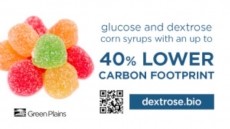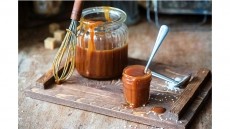Divine buys up first Sierra Leone Fairtrade cocoa shipment
Charlotte Borger, head of communications at Divine told ConfectioneryNews.com that the amount of cocoa sourced from the Kpeya Agricultural Enterprise (KAE) in Sierra Leone only totalled one container - 12.5 tonnes – but she emphasized that the shipment represents a move in the right direction for farmers in another cocoa growing region in West Africa.
She said that the members of Kuapa Kokoo, the Ghanaian cooperative that owns 45 per cent of Divine Chocolate, have visited the farmers based in the KAE to share their expertise in terms of running a cooperative and also to provide advice on cocoa quality improvement through drying and fermentation processes.
“The quality of the cocoa coming from the KAE cooperative is now of the standard necessary for use in the Divine range, and the Kuapa Kokoo cooperative’s agreement to allow KAE growers in Sierra Leone receive the Fairtrade premium from Divine indicates the sincerity of the original aim of Divine to improve the livelihoods of West African farmers,” said Borger.
She said that the KAE farmers have also received training from Twin, the Fairtrade NGO behind Cafedirect, Divine Chocolate and Liberation Nuts, and have learned how to export its own cocoa with the help of other organisation such as the UN FAO and the German NGO, Agro Action.
Since it started supplying chocolate in the UK ten years ago, Divine has become a £12.4m business and supplies markets in the US, the Scandinavian countries, Holland and more recently South Korea. In the last three years, Borger said, the Kuapa Kokoo farmers are seeing a dividend on the profits generated by Divine chocolate.
According to data from market trackers Mintel, 143 new Fairtrade confectionery products were launched globally in 2009, five in North America and 117 in Europe.
And, in January this year, Hans Vriens, chief innovation officer at Barry Callebaut, said that while demand for organic certified chocolate has been growing steadily over the past ten years, the company has seen a jump of more than 50 per cent in the demand for Fairtrade certified products in 2009 and an hike of 12 per cent in certified products volume overall.
To qualify for Fairtrade certification, companies have to pay a minimum price to their suppliers, plus a premium of about $150 (€101) a tonne of cocoa. Based on volume of sales, the companies must also pay a licence fee to the Fairtrade foundation and they need to commit to pledges that no child labour is used in the cocoa production.
In December last year, Nestlé UK moved Kit Kat, its leading confectionery brand, to Fairtrade in the UK and Ireland, with the four-finger version of the brand set to be the first one to carry the Fairtrade mark. The Kit Kat range makes up approximately 23 per cent of Nestlé Confectionery UK sales so the deal is expected to increase Fairtrade chocolate sales by £43m (€47.5m) annually.
And, in March 2009, Cadbury announced its commitment to source Fairtrade cocoa for its iconic Dairy Milk chocolate bars and drinking chocolate in the British and Irish markets. Sales of Dairy Milk in the UK and Ireland are worth £200m (€214m).
Divine’s Charlotte Borger, commenting on the recent switch to Fairtrade by Cadbury and Nestlé UK, questioned why the confectionery makers were only seeking Fairtrade certification for one of their brands.
She stressed that only 20 per cent of the sustainable cocoa produced at the Kuapa Kokoo, the Ghanaian cooperative, is currently availed of by chocolate manufactures, so an explanation that there was not enough sustainably produced cocoa available to extend certification to a confectioner’s range does not hold water, according to Borger.

















